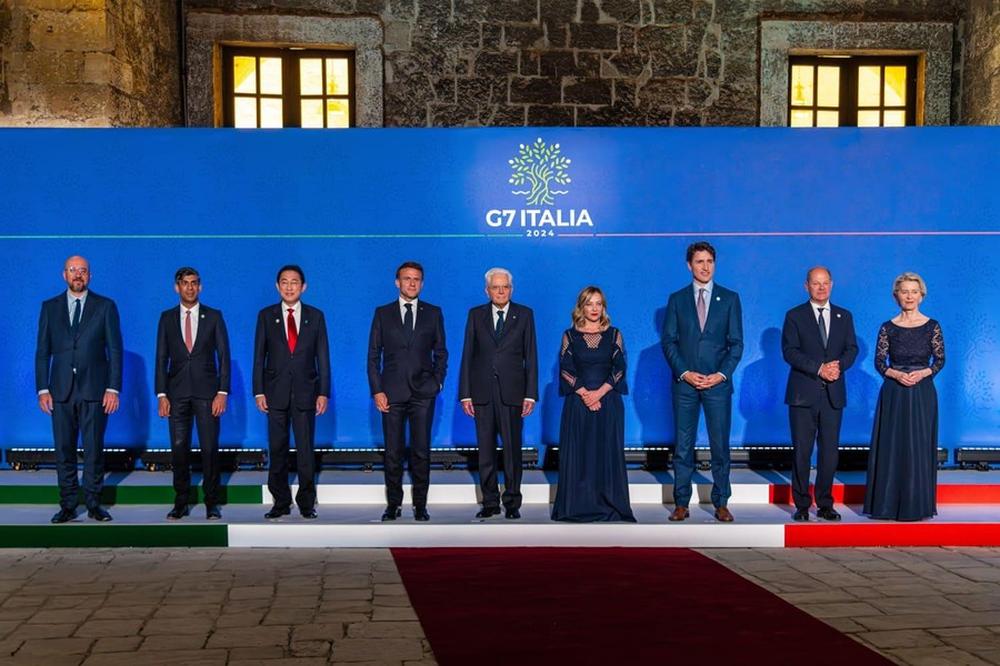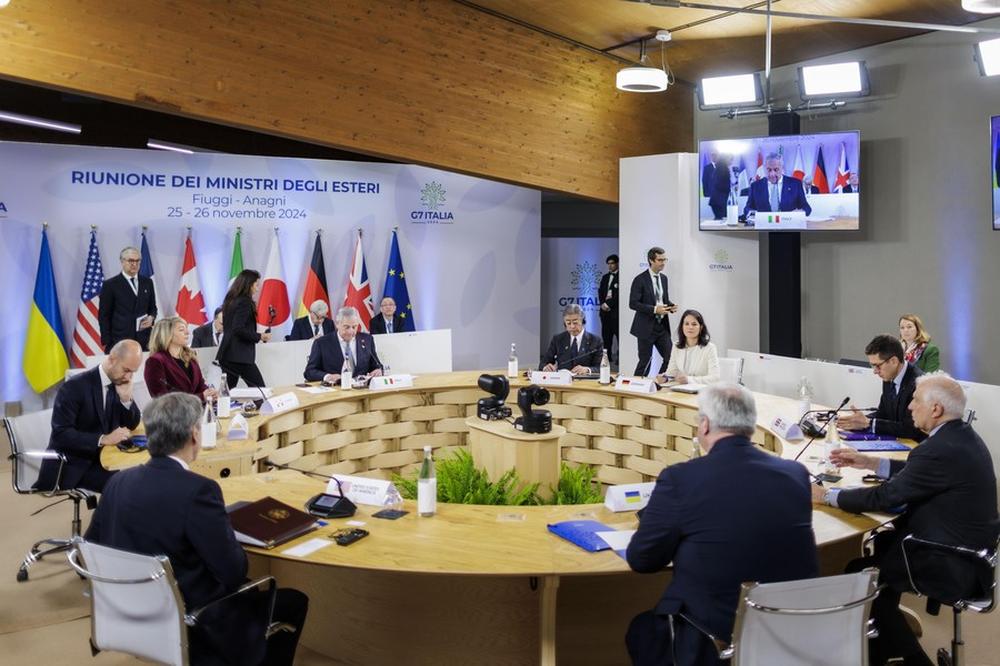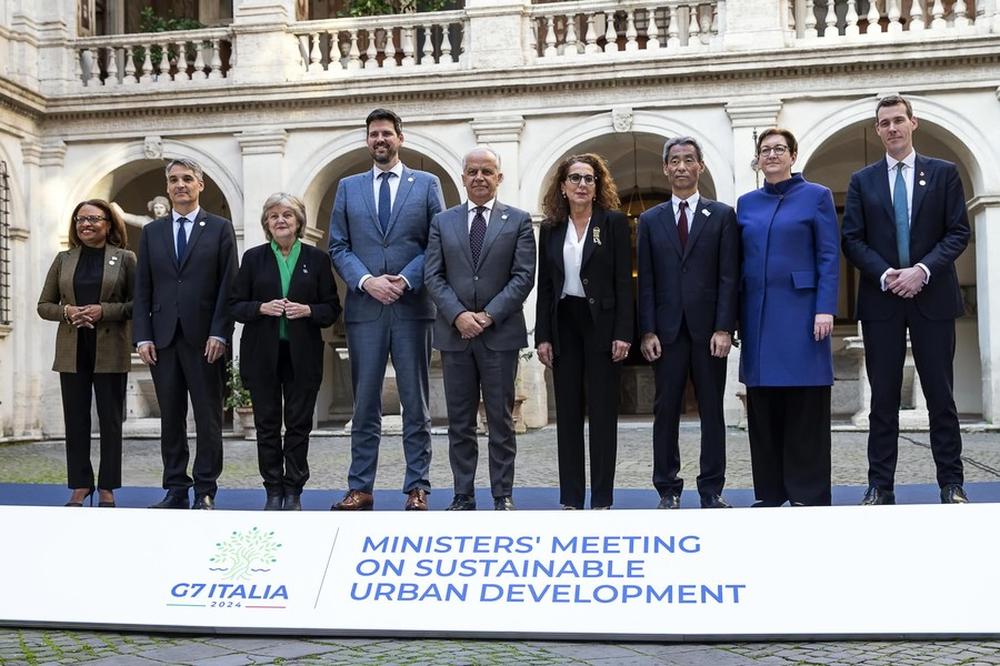- #Global Issues
- #Multilateral Relations
- #South Korea
- #US Foreign Policy

► Currently a Euro-centric grouping with only Japan representing Asia, the G7 is increasingly ill-equipped to address a world where the economic center of gravity and significant security challenges are shifting to Asia.
► South Korea must build on the improving momentum in its bilateral relationship with Japan.
► South Korea should expand its middle-power diplomacy, leveraging its technical competence and entrepreneurial flair to address issues that may appear geographically or politically remote but are crucial to global challenges.
The prospect of South Korea joining the G7 is frequently discussed in South Korean media and at think tank conferences. It is often presented as a foregone conclusion and a natural extension of the country’s foreign policy endeavours. However, South Korea has yet to receive a formal invitation. In fact, South Korea was not invited to this year’s G7 summit in June in Italy, nor was it included in the G7 foreign ministers’ meeting, although it did participate in the outreach sessions of the G7 finance ministers’ meeting. While deeper cooperation between South Korea and the G7 would be mutually beneficial, there are several key tasks South Korea must address to strengthen its case for formal membership.
South Korea’s motivations for G7 membership
A formal membership in the G7 would be a fitting culmination of South Korea’s remarkable transformation from a war-torn country to an economic powerhouse. South Korea’s journey from an aid "recipient turned donor" to joining the Organisation for Economic Co-operation and Development (OECD) in 1996 and later becoming a member of the OECD’s Development Assistance Committee (DAC) in 2010 were important early milestones. These steps put South Korea on the map of advanced industrial nations.
Furthermore, in 2020, South Korea was invited to participate in NATO’s ministerial meeting, and for the past three years, it has been invited to NATO summits as an Indo-Pacific partner. Alongside these developments, South Korea has participated in several minilateral frameworks, including the Indo-Pacific Economic Framework (IPEF), the trilateral U.S.-Japan-South Korea framework, and Chip 4. Together, these developments reflect South Korea’s growing international influence and its relentless pursuit of further inclusion among the other advanced nations. For South Korea, a G7 membership would seal the deal affirming the international community’s recognition as an advanced industrial nation and reassuring the South Korean political elite that South Korea is treated on par with other leading nations.
The desire to be “in” stems from South Korea’s geopolitical uncertainty. With growing US-China tensions in the region, the stakes are too high for South Korea to be left out of important discussions. Additionally, with the uncertainty surrounding the potential implications of a second Trump administration for the ROK-US alliance, it would be prudent for South Korea to diversify ties going beyond the US alliance while maintaining strong cooperation with the US through multiple channels. A G7 membership would also allow South Korea to draw greater attention to the threat posed by North Korea’s nuclear weapons, which is currently hindered by the deadlock in the United Nations Security Council (UNSC).
Benefits for the G7
The G7 would undoubtedly benefit from South Korea’s membership. Currently a Euro-centric grouping with only Japan representing Asia, the G7 is increasingly ill-equipped to address a world where the economic center of gravity and significant security challenges are shifting to Asia. The G7 has a history of evolving to meet new demands—initially established to tackle major economic issues, it has since expanded its scope to address global challenges such as international security, development, and human rights. Adding another major Asian nation like South Korea would be a logical next step to effectively address issues emanating from and impacting Asia.
Expanding the G7 is also a time-sensitive matter, given the steps taken by Russia and China to consolidate their spheres of influence through alternative multilateral frameworks. For example, BRICS has grown from a small grouping of Brazil, Russia, India, and China in 2009 (South Africa joined in 2010) into a geopolitical bloc of nine countries. Recent additions like Iran, Egypt, Ethiopia, and the UAE have made BRICS a formidable coalition, now representing 45% of the world’s population.
Similarly, the Shanghai Cooperation Organization (SCO), initially formed in 2001 with the Shanghai Five nations (China, Russia, Kazakhstan, Kyrgyzstan, and Tajikistan, later joined by Uzbekistan), has steadily expanded its membership. India, Iran, and Belarus joined in 2017, 2023, and 2024, respectively, while Afghanistan holds observer status, and countries like Egypt, Cambodia, and Myanmar are dialogue partners. Clearly, both BRICS and the SCO are consolidating an alternative multilateral order.
South Korea, in contrast, stands apart as one of the world’s largest economies not aligned with BRICS or the SCO. As a vibrant democracy and a ready partner, South Korea is well-positioned to strengthen the G7’s capacity to address pressing global challenges. Past proposals for G7 enlargement, such as the D10 initiative, have surfaced and receded, notably due to political disagreements and consideration of practical challenges. But membership expansion has occurred before; Russia was admitted in 1998 before it was banned in 2014 after its annexation of Crimea. Indeed, such flexibility is a great asset for G7. Without reforming to better address global challenges, G7 risks irrelevance.
But first, some tasks for South Korea
To make the case stronger for a G7 membership, South Korea should focus on three key tasks. South Korea must build on the improving momentum in its bilateral relationship with Japan. Under President Yoon Suk Yeol and former Prime Minister Fumio Kishida, relations have shown significant recovery, supported by U.S.-led trilateral cooperation. This progress was underscored by President Yoon’s participation in the 2023 G7 Summit in Hiroshima at Kishida’s invitation. Strengthening ties with Japan under new Prime Minister Shigeru Ishiba will not only address Japan's alleged reservations about G7 expansion but also facilitate collaborative efforts to counter challenges such as China's regional assertiveness and North Korea’s nuclear ambitions.
Second, South Korea must convincingly demonstrate its indispensability on the global stage. While President Yoon’s "Global Pivotal State" is on the right path, but so far, activities have not been sufficiently global nor pivotal. For instance, Italy’s decision not to invite South Korea to this year’s G7 Summit was influenced by the Summit’s focus on issues relating to the African and Mediterranean region, such as migration and development—areas where South Korea’s engagement has been perceived as insufficient. South Korea should expand its middle-power diplomacy, leveraging its technical competence and entrepreneurial flair to address issues that may appear geographically or politically remote but are crucial to global challenges.
Third, to support these endeavours and make a stronger case for G7 membership, South Korea needs to increase domestic consensus. South Korean political elite needs to devote resources to explaining to the domestic audience why closer ties with Japan are important. The recent surge in people-to-people relations provides a favourable environment. There should also be efforts to link why an outward-looking foreign policy agenda going beyond the Korean Peninsula is in South Korea’s national interests on the Korean Peninsula. For example, a more global South Korean foreign policy enhances its strategic leverage and builds international support for South Korea’s policies on North Korea.
In conclusion, South Korea’s pursuit of G7 membership reflects its aspirations to solidify its status as a global leader while seeking acknowledgment from other advanced nations of its achievements and potential. While South Korea’s economic success and vibrant democracy make it a compelling candidate, additional efforts are necessary to bolster its position. Strengthening relations with Japan, taking on leadership roles in addressing global and regional challenges, and fostering domestic support are critical steps. By achieving these goals, South Korea can further establish itself as an indispensable partner for the G7, contributing meaningfully to the group’s evolving global agenda.
Saeme Kim is lecturer at Yonsei University and Ewha Woman’s University. Her research interests include the international relations of East Asia, particularly concerning regionalism, North Korea and middle power diplomacy. She received her PhD from King’s College London.


